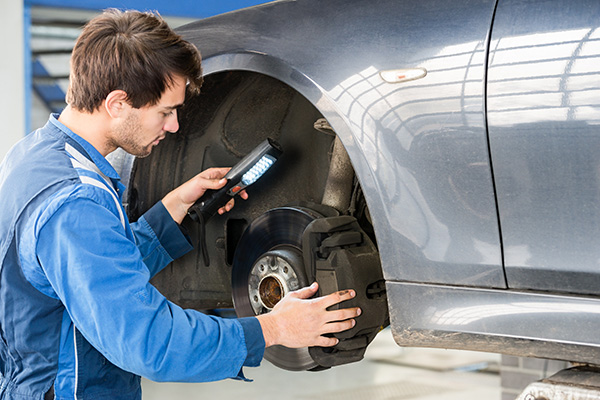
Hearing strange noises when you hit the brakes? That’s never a good sign. Whether it’s a squeak, a grind, or a loud screech, any unusual sound coming from your brakes should never be ignored. Your braking system is one of the most important safety features of your car, and when it starts making noise, it’s trying to tell you something.
Let’s find out what different brake noises mean, why they happen, and when you should take action before minor issues turn into costly repairs.
Squeaking or Squealing Brakes
One of the most common brake noises is a high-pitched squeal. In many cases, this sound is caused by brake pad wear indicators—small metal tabs designed to alert you when it’s time for a replacement. If you hear a squealing sound consistently, it likely means your brake pads are wearing thin and need to be changed soon.
However, sometimes brakes squeak due to temporary factors like moisture or dust buildup. If the noise happens once in a while, especially after a rainy day or during cold weather, it might not be an immediate concern. But if the squealing is persistent, it’s best to have your brake pads inspected.
Grinding or Growling Sounds
A grinding noise when you brake is a much bigger red flag. This usually happens when the brake pads are completely worn down, exposing the metal backing plate. When the metal starts rubbing against the brake rotor, it creates that harsh grinding sound—and that’s not just annoying, it’s dangerous.
Driving with metal-on-metal contact will damage your rotors, making repairs more expensive. In extreme cases, it can even lead to complete brake failure. If you hear grinding when you press the brakes, don’t wait—get your vehicle inspected as soon as possible.
Rattling or Clunking Noises
If you hear a rattling sound while braking, it could mean something in your braking system is loose. This could be anything from a caliper bracket to the brake pads themselves shifting inside the caliper.
Clunking noises, on the other hand, could indicate a more serious issue, such as a suspension or steering component that’s worn or loose. While these noises might not always be tied directly to the brakes, they still affect your car’s ability to stop safely.
Clicking or Thumping Sounds
A rhythmic clicking sound when a loose brake pad or a damaged anti-rattle clip might cause braking. These clips are designed to keep the brake pads in place, and if they break or become loose, the pads may move around, creating that clicking noise.
If the sound is more of a thump or pulsation, you could be dealing with warped brake rotors. Warped rotors create uneven contact with the brake pads, causing vibrations or an inconsistent braking feel. This problem can worsen over time, so it’s best to get it checked out sooner rather than later.
What Should You Do If Your Brakes Are Noisy
Ignoring unusual brake noises isn’t just bad for your wallet—it’s a safety risk. The moment you hear anything unusual, take these steps:
- Listen carefully – Try to determine when the noise happens. Does it occur only when you brake, or is it constant? Is it coming from the front or rear of the vehicle?
- Check for visible issues – If you feel comfortable, take a look at your brake pads through the wheel spokes. If they look extremely thin (less than a quarter-inch), they likely need to be replaced.
- Schedule an inspection – The safest and smartest thing to do is have a professional inspect your brakes. They can identify worn-out components and recommend necessary repairs before the issue worsens.
Your brakes should never be a guessing game. If you’re hearing unusual noises, don’t wait for the problem to get worse. Visit Auto Rescue in Midlothian, VA, or Richmond, VA, for expert brake inspections and repairs. Call today to schedule an appointment!